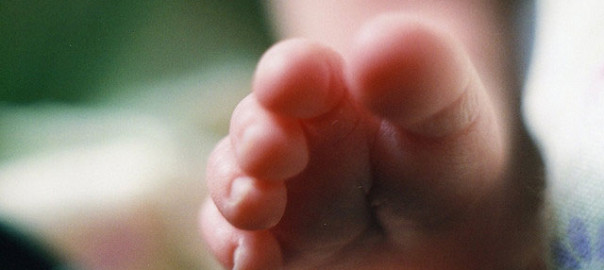Mosquitoes are maddening enough for adults: think how much worse they torment babies. With their delicate skin and lack of mobility, babies are perfect prey for bloodsuckers.
Moreover, babies and children are typically bitten more by mosquitoes than by any other type of insect.
Here are proven tips on how to protect your baby from mosquitoes.
1. Keep your baby away from mosquitoes
Timing and location are essential. Your primary aim should always be to keep mosquitoes away from your baby as well as your baby away from mosquitoes.
That means keeping babies inside at peak biting times (usually dawn and dusk), and staying away from pools of still water where mosquitoes breed. Also flower gardens and unconvered foods attract skeeters.
Check your house and yard for stagnant water – a puddle in a blocked gutter can harbor thousands of mosquito larvae.
While you’re at it, take other measures to mosquito-proof your yard too.
2. Use screens and nets
Window screens stop the little blighters from flying into the house, and a net around your baby’s crib or play pen will stop any that get past the screen.
For travelling around, you can buy elasticated mosquito nets which fit snugly to a pram, stroller or car seat.
3. Keep the air moving
Insects find it hard to navigate when there’s a breeze, so try using a desk fan rather than turning on the air conditioning or opening the windows.
Research shows that fan-generated wind is a practical means of protecting from mosquitoes.
4. Use traps and repelling devices
Ultrasonic pest repellers, such as the popular Rid-Tech Ultrasonic Pest Repeller, work wonders according to many people. Critics claim these devices are useless but the abundant positive reviews indicate otherwise.
Added benefit of these ultrasonic devices is that they repel other bugs you don’t want near your baby such as spiders and scorpions too.
Another popular option are electronic insect zappers. Obviously you don’t want to hang a big bug-zapping lightin your baby’s room but placing one outside near the nursery can help reduce the amount of mosquitoes swarming nearby.
Here’s an overview of the best bug zappers available.
5. Use insect-repellent flowers
Chrysanthemum flowers provide an unexpected alternative: they give off a natural variant of the chemical repellent picaridin. And happily, a vase of chrysanthemums looks much nicer in your baby’s room than a buzzing blue trap.
6. Cover up
When your baby is outside, try to cover as much of their skin as possible, including their head and feet.
Socks under sandals, hats with flaps, long-sleeved t-shirts and trousers – the more clothing, the better.
Mosquitoes can bite through knitted clothing but have trouble with woven fabric, so a stiff cotton shirt will provide more protection than a stretchy swimsuit.

7. Dress your baby in neutral-colored clothing
Dark or bright-colored clothes and/ or flowery prints can make your baby more vulnerable to sight hunters so add an extra layer of protection.
Beige, khaki, olive and other neutral colors do not attract (or in lesser degree) insects including mosquitoes.
8 Avoid using scented lotions or soaps
There are hundreds of different species of mosquito – some find their prey by sight, others sense the carbon dioxide on your breath, others are attracted to the smell of a human body.
Strong-smelling skincare products can attract the mosquitoes which hunt by scent.
9. Use synthetic repellents
Once you’ve cleared mosquitoes away from the area and wrapped your baby in layers, chemical repellents are the final step to deter any remaining mozzies.
The insecticides DEET and picaridin can both be used on babies from two months old.
Mosquito repellents are rated by the percentage of active ingredient they contain – usually 5% to 30% for DEET, 7 to 20% for picaridin.
Popular choices are;
- Premium Insect Repellent with 20% Picaridin by Sawyer Products
- Repellent products with that contain up to 30 percent DEET
A higher percentage doesn’t mean that the repellent is more effective, only that it lasts longer.
Insect repellents are safe if used as directed, so always remember to follow the instructions closely.
Apply repellent sparingly to your baby’s exposed skin, do not apply to the skin underneath his or her clothes.
Spray the lotion onto your own hands before rubbing onto your baby’s exposed skin, so there’s no risk of them inhaling the vapor.
Avoid rubbing repellent too close to your baby’s eyes, mouth, or ears, and keep it off his hands in case he sucks on them.
10. Think about sunscreen
Some products contain both bug repellent and sunscreen, which is a convenient way to protect your baby quickly before short trips outside.
They aren’t recommended for longer periods of time, because sunscreen needs reapplying far more frequently than insect repellent.
The American Academy of Pediatrics advises against using products that combine sunscreen and DEET because:
DEET should not be applied more than once a day in children.
WebMD refers to as study that showed that combining sunscreen with DEET caused the skin to absorb the insect repellent more than three times faster than when used alone.
If you’re planning to apply sunscreen and insect repellent separately, make sure to apply the sunscreen first – otherwise it can mask the effectiveness of the insect repellent.
An often recommended bug spray with SPF for babies is Avon Skin-So-Soft Bug Guard plus Picaridin.
11. Try a natural alternative
Many parents are wary of using strong chemicals on their baby’s delicate skin, and everything from olive oil to woodsmoke has been recommended as a natural mosquito repellent.
Oil of lemon eucalyptus, or PMD, is the only alternative remedy recommended by the American Centre for Disease Control. It has been proven to be as effective as DEET, but needs reapplying more frequently.
- Officially, it isn’t recommended by the CDC for children under 3: this is because it hasn’t been tested on babies, not because it is believed to be dangerous.
Repellents containing oil of lemon eucalyptus are sold under the Off! Familycare Botanicals as well as Cutter and Repel Natural brands.
Other science-backed plant-based mosquito repellents include neem, catnip, hairy basil, and verbena; carriers such as coconut oil, soybean oil, and vanillin can help to boost their efficiency.
These pungent plants can reduce bites by 70-100%. The problem is that many natural remedies are effective against only certain species of mosquito, unlike synthetic repellents which repel all types.
12. Treat your kid’s clothing
To reduce the risk of bites still further, you can apply repellent to your baby’s clothing as well as their skin. This can be as simple as spraying your baby’s clothes with the same repellent you’re applying to their skin.
For a longer-lasting solution, you can treat their clothes with permethrin; the chemical is odorless to humans and will repel insects for 5-6 washes.
The bottom line
Physical blocks like nets and fans will keep away most of the mosquitoes, and insect repellent are likely to do the rest. Be smart about where and when you take your baby as well as clothing and skin care products you use.
Enjoy summer with your baby this year, instead of worrying about bug bites and diseases.
Not Recommended
Citronella candles
In studies, citronella candles and torches have been shown to ward off the little blood-suckers to some extent. These candles produce smoke that confuses mosquitoes, thus interfering with their ability to smell us and find us.
There are some considerable downsides though.
Research also shows that their range of effectiveness is very limited, less than 2 metres and then only if there’s no breeze.
What’s more is that research has found that there are large particles in the smoke these candles produce.
These aerosol emissions may raise concerns about how safe it is to regularly breathe in this smoke. Not something you will want to burn in your baby’s bedroom.
Image: sabianmaggy.

Thank you so much.
Question: Is it too late in the season in northern Illinois to purchase mosquito eating insects to disperse in large wooded area around my house? If not too late, what type of insects should I buy? Thanks again.
Thanks for the tips. I particularly liked the non-toxic and homemade remedy tips.